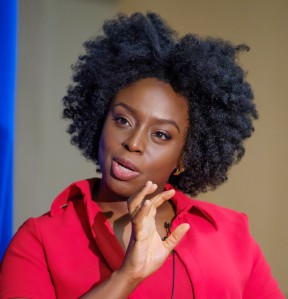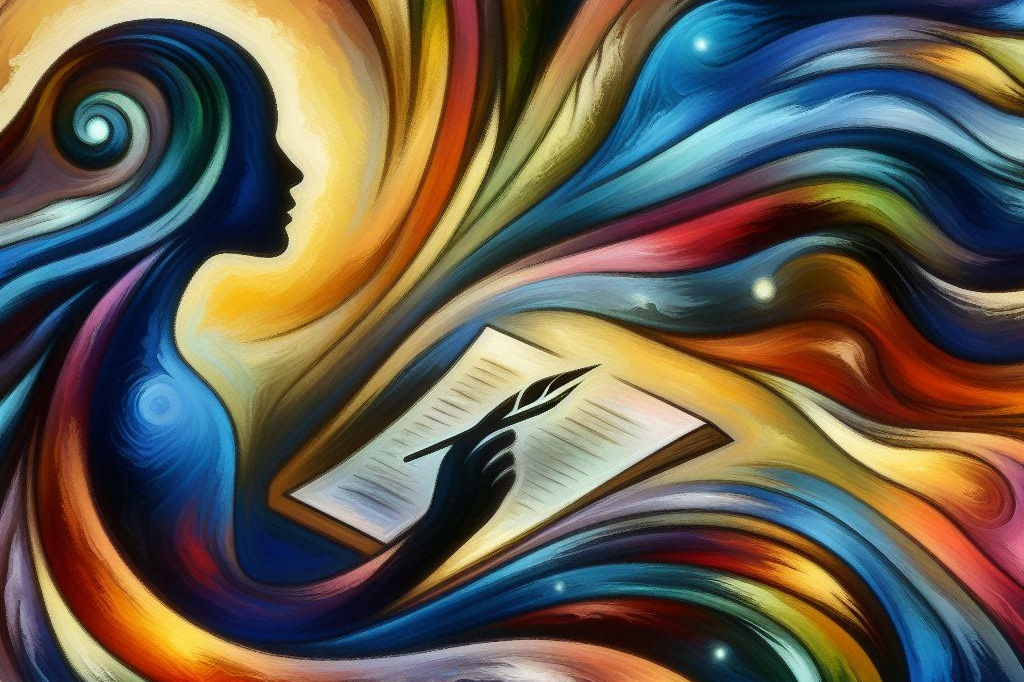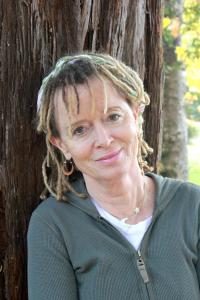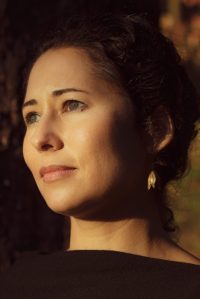“Indeed, I would venture to guess that Anon, who wrote so many poems without signing them, was often a woman.“
Virginia Woolf, “A Room of One’s Own” (source)
Today is the first Monday of Women’s History Month, held each March to recognize and celebrate the achievements of women throughout U.S. history. Reflecting on Virginia Woolf’s comment, and how women have long been overshadowed in the world of literature (among other fields), I’m using today’s post to highlight a few of the women writers whose work has influenced my writing and thinking in recent years.
The works of these three women — each of them alive and well and still creating — have broadened my perspective on storytelling, spirituality, and the significance of diverse voices in the story of our nation.
Chimamanda Ngozi Adichie

Born in Enugu, Nigeria, in 1977, the daughter of a professor and university registrar, Chimamanda Ngozi Adichie came to the U.S. at age 19 to continue her education. I first learned about her seven or eight years ago when I picked up a paperback copy of her novel Americanah at a Barnes & Noble.
Americanah is the story of two Nigerian lovers who travel to the West, are separated through a series of circumstances, and ultimately are reunited. But it is much more than that. The novel is also a tale of the Nigerian diaspora, of education, of battling depression, and of being Black — particularly a non-American Black — in the United States.
Reading Americanah also gave me greater insight into Nigerian culture and, by extension, the human experience. The protagonist, a young woman named Ifemelu, begins a blog that gains some popularity, and she uses it to discuss issues of race, as with the quote below from one memorable blog post.
Dear Non-American Black, when you make the choice to come to America, you become black. Stop arguing. Stop saying I’m Jamaican or I’m Ghanaian. America doesn’t care. So what if you weren’t “black” in your country? You’re in America now.
Chimamanda Ngozi Adichie, “Americanah”
Adichie has also written award-winning short stories, essays on feminism (most famously, “We Should All Be Feminists,” adapted from a TEDx talk of the same name), and the novels Purple Hibiscus (which is on my to-read list) and Half of a Yellow Sun (which I’ve started).
For a good introduction to this wonderful writer, I suggest you view her TED Talk from 2007 titled “The Danger of a Single Story.”
Anne Lamott
In 2018, The New York Times branded Anne Lamott the “Leftie Guru of Optimism.” I guess that’s an OK tagline for the author, who has written novels, books on spirituality, and now frequently contributes to the Washington Post, where most of her articles home in on the travails and blessings of aging. I added blessings into that last sentence, because, true to her optimistic bent, she manages to find hope in circumstances others might find dire. Case in point: her latest WaPo article, “A superpower of older age: Powerlessness,” where she writes:
This is the main advice I give younger people who get troubled and stuck. I say, “Yes, it sounds really awful. Just do one good thing, and then another, and breathe. You’re going to be okay.” I tell them what John Lennon said: “Everything will be okay in the end. If it’s not okay, it’s not the end.”
Anne Lamott, “A superpower of old age: Powerlessness”
I first encountered Lamott’s writings through her book Traveling Mercies: Some Thoughts on Faith. Published in 2000, it’s a memoir-ish exploration about the love and grace of God as encountered by a non-traditional Christian, an ex-alcoholic hippie who stumbled into God’s grace. I found it wonderfully refreshing — a beautiful departure from much of the contemporary evangelical-style Christian writings I’d been immersing myself in at the time. How she beautifully captured the puzzling concept of grace still resonates with me.
It is unearned love — the love that goes before, that greets us on the way. It’s the help you receive when you have no bright ideas left, when you are empty and desperate and have discovered that your best thinking and most charming charm have failed you. Grace is the light or electricity or juice or breeze that takes you from that isolated place and puts you with others who are as startled and embarrassed and eventually grateful as you are to be there.
Anne Lamott, “Traveling Mercies: Some Thoughts on Faith”
Lamott has written some novels and a fine little book for writers, Bird By Bird: Instructions on Writing and Life, but her wheelhouse is the personal essay and memoir. Beyond Traveling Mercies, I recommend Plan B: Further Thoughts on Faith and Hallelujah Anyway: Rediscovering Mercy. Her latest book, Somehow: Thoughts on Love, comes out in April.
A trigger warning for my conservative friends: Lamott can get a bit preachy with her left-of-center political leanings, but if you can set aside any prejudice you might have toward liberalism, you might enjoy some of Lamott’s takes — and find that, on matters of significance, you might even find some agreement.
Kirstin Valdez Quade
I discovered Kirstin Valdez Quade via a search on the audiobook app Libby. That’s where I found the audio version of her debut novel The Five Wounds. I downloaded the 5-minute sample, and was blown away by the writing and the opening images unfolding to my ears. I could not wait to listen to the entire book. It did not disappoint.
The winner of numerous literary awards, The Five Wounds introduces us to a dysfunctional Mexican-American family: teenage mother-to-be Angel Padilla; her parents, the struggling, unemployed alcoholic Amadeo and his estranged wife Marissa; and her grandmother, Yolanda, who holds secrets he refused to divulge to her family.
The novel begins with Angel arriving at the house where her father and grandmother live as Amadeo, in hopes of atonement, prepares to play the role of Jesus in his town’s annual reenactment of the Passion of the Christ during Holy Week. He takes the role very seriously — and quite literally — to signal his commitment. With tremendous detail, dialogue and scene-setting, Quale weaves together a narrative of each individual struggling to overcome their dysfunction, addiction, abuse, and generational trauma. The novel also portrays the struggles of an impoverished family, the unstable social fabric in place to support them, and the role Catholicism plays in their lives.
In watching yet another pained young man prepare for the role of carrying the cross of Jesus in the yearly re-enactment of the passion, Amadeo thinks, ‘The procession isn’t about punishment or shame. It is about needing to take on the pain of loved ones. To take on that pain, first you have to see it. And see how you inflict it.’
Excerpt from “The Five Wounds,” by Kirstin Valdez Quade
As great as the audiobook was, I knew I had to purchase a printed copy of the book. Since then, I’ve been tracing backward to find Quale’s other works. She’s linked to several short stories and essays on the selected works page of her website. As I delve into these works, I look forward to her next novel. I’m sure it will also be dynamite.
Your thoughts?
I could of course write more about other great women writers from history. I’ve been influenced over time by the brilliant short stories of Flannery O’Connor and Shirley Jackson, the novels of Toni Morrison, the writings of Virginia Woolf, the poetry of Emily Dickinson and Mary Oliver, and many other women writers.
How about you? Who are your favorites, and why? Please share in the comments below. And remember to celebrate and acknowledge the women in your life throughout the month of March and beyond.
AI-generated image via Microsoft Copilot.




“The Cloister Walk” by Kathleen Norris came into my life about 15 years ago via a yard sale. I return to it often when I need to visit a quiet and beautiful place.
I’ve heard good things about that book!